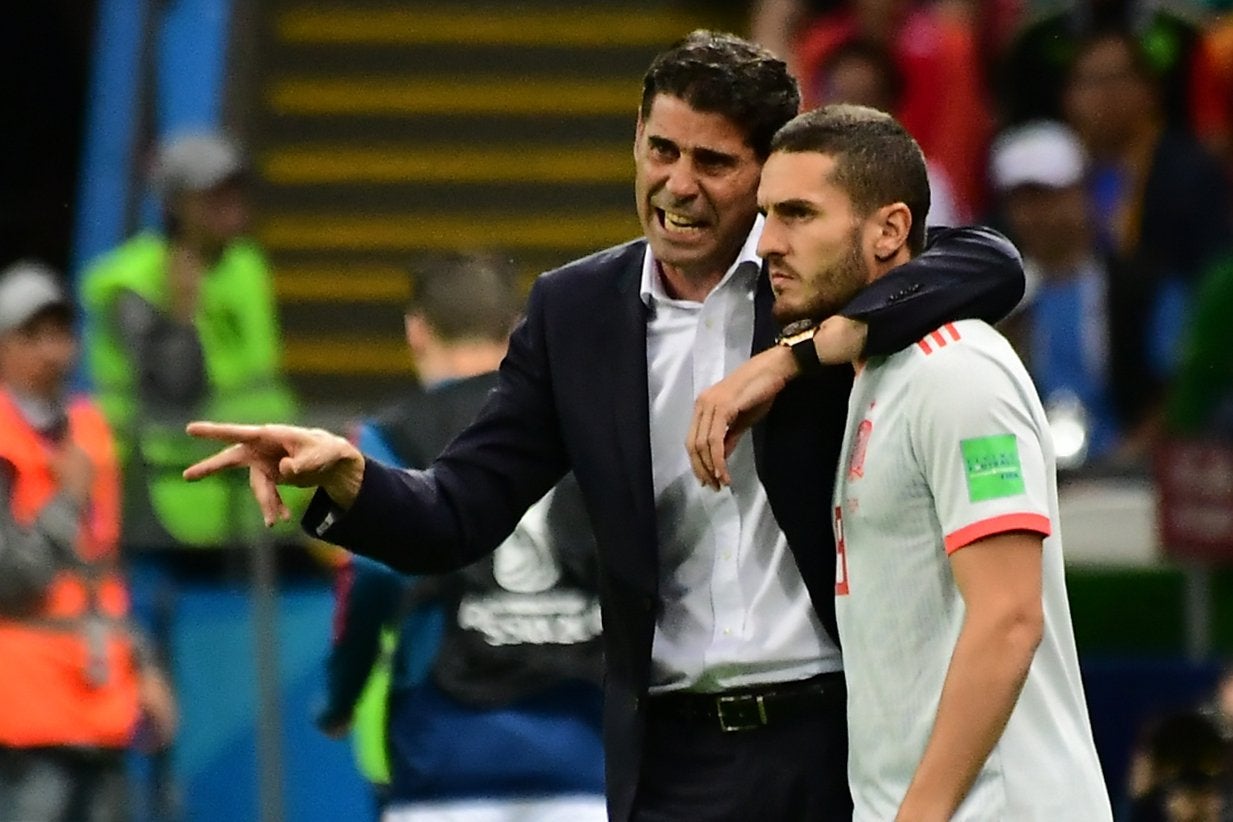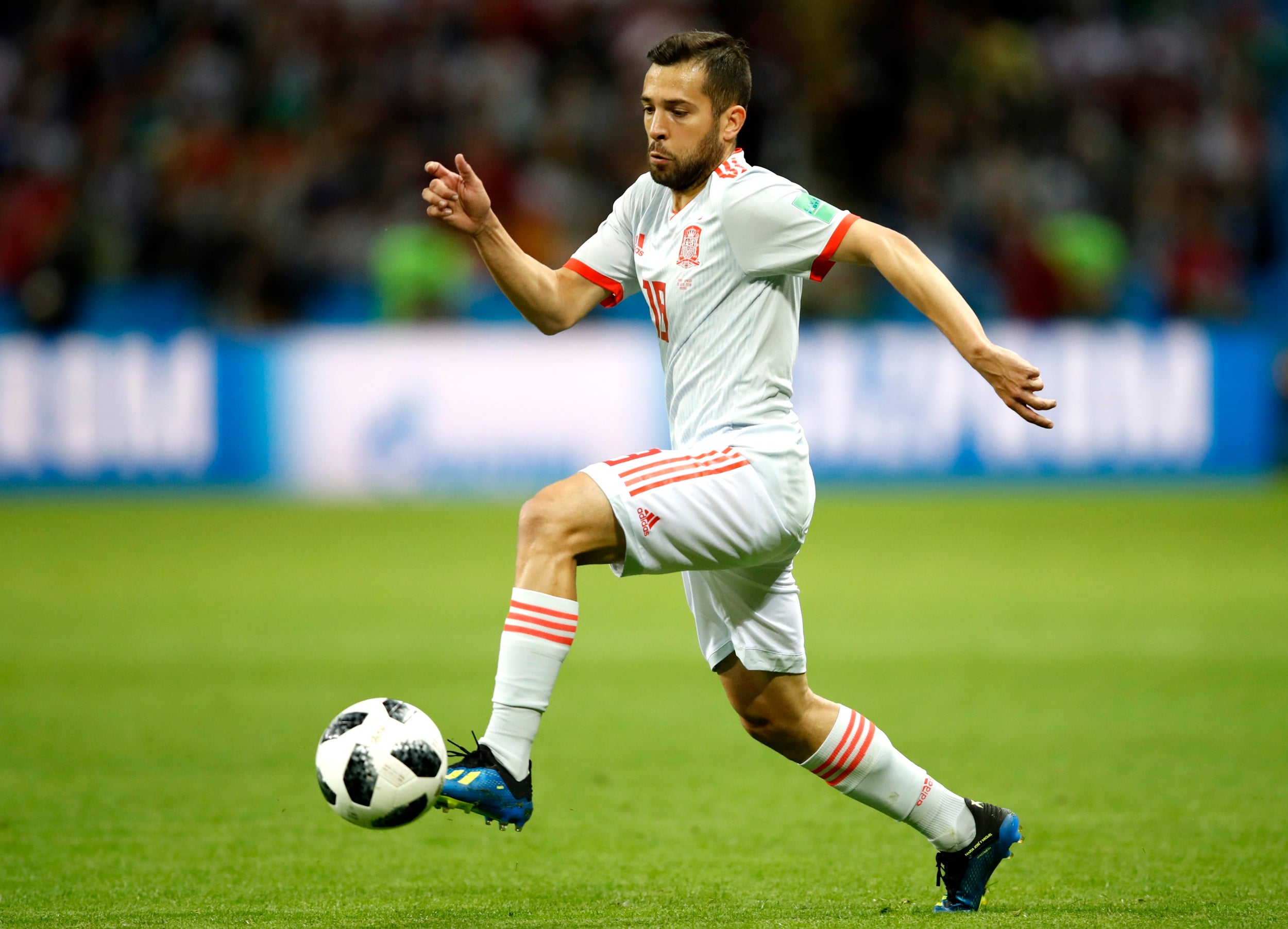World Cup 2018: Diego Costa’s ‘fight’ gives Spain cutting edge – but questions over Fernando Hierro remain
Spain beat Iran to move into a very strong position in the group, but there are questions after the match in Kazan that cannot simply be answered with the words ‘Cristiano Ronaldo’
Fernando Hierro admitted after Spain’s 1-0 win over Iran on Wednesday that the impression was rather less positive than it had been after the 3-3 draw against Portugal. He was still cheery enough, stressing quite rightly that Iran are a decent side and that four points leaves Spain in a very strong position in the group, but there are questions after the match in Kazan that cannot simply be answered with the words “Cristiano Ronaldo”.
To begin with the positives: Spain won. Iran’s approach, packing men behind the ball, wasting time, clearly was a source of irritation, as Diego Costa’s snappish response to a question from an Iranian journalist about why he enjoyed provoking opponents so much suggested.
“What game were you watching?” he asked incredulously. “It was them who were provoking us, and we were on the grass all the time. You have to watch the game properly. You cannot just say that because it is your national team.”
Jordi Alba, a player whose great strength from an attacking point of view is his capacity to burst beyond the defensive line, was less than effective, largely because Iran were so deep there was no space beyond the defensive line. But that’s not to dismiss him; it’s just to say this wasn’t his sort of game and to make the wider point that when teams operate such a low block and pack so many men behind the ball, as England found against Tunisia or Uruguay against Egypt, it can be hard to break them down. There will be more proactive opponents against whom Alba thrives.

But Spain kept playing, kept passing, and eventually created enough of an opening for Costa to do what he does best, and snaffle what was barely even a half-chance. “He fights very hard at both ends of the pitch,” said Hierro. “He gives everything and he is surrounded by people who want him to do every well. I am very happy with him and his commitment.” His capacity to conjure goals from next to nothing means this Spain has an edge the world champions of eight years ago perhaps lacked. However under pressure they may appear, however resolute an opponent may seem, his presence means a goal is always possible.
Andres Iniesta, whose pass prised the Iran defence open, remains a major threat. David Silva buzzed about with menace. The creative options are all there, not quite as relentless as the 2010 side, perhaps, but dangerous nonetheless.

The bigger issue is at the other end of the pitch. It may have been a psychological issue that, having finally taken the lead against a dogged opponent, Spain subconsciously relaxed, but there must be concerns about the way Iran created three or four very presentable chances in the final 20 minutes. Crosses were a particular threat, while the general lack of pace in the Spain side looks a weakness ripe for the exploitation.
Sergio Busquets’s positioning means his lack of pace is only rarely exposed, but in a side as set up for attack as this, that lack of zip is a vulnerability. Then again, against sides less committed to defending, Hierro probably wouldn’t go in with such an attacking side; against Portugal, Koke was used to help offer greater balance and protection in midfield.
And that, of course, hints at the biggest issue of all, which is Hierro. Here he played Isco on the left and Lucas Vazquez on the right, something Spain had not done at all in qualifying. Hierro explained he had done so in order to overman on the left, and perhaps the logic was sound, but the point was that this was something new, something the payers have had to get used to this week. “You have to get used to the fact that I am coach now,” Hierro said when asked about the selection. Which is true, and he should succeed or fail by his own ideas, not by guessing what his predecessor, Julen Lopetegui, would have done. But this is not the ideal time for players to be getting used to a different way of approaching games.
The 3-3 draw with Portugal was coherent enough to be reassuring; this win, hard-earned as it was, and though it left Spain within a point of qualification, suggested the transition may not be as straightforward as it might have seemed.
Join our commenting forum
Join thought-provoking conversations, follow other Independent readers and see their replies
Comments
Bookmark popover
Removed from bookmarks